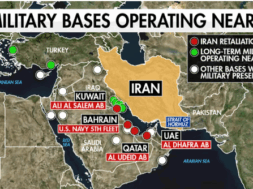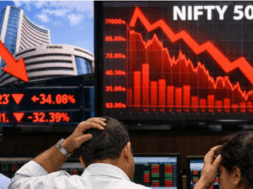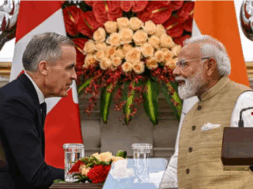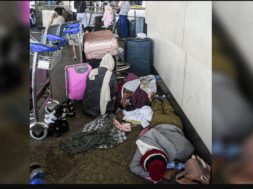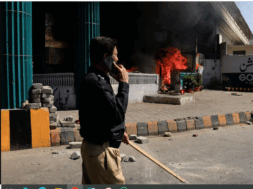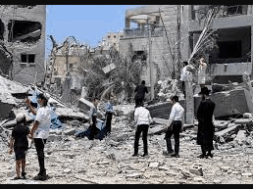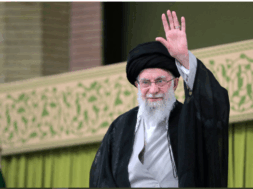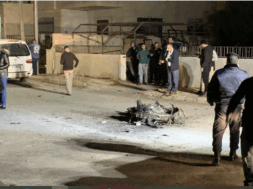
Roving Periscope: Will Putin physically attend the BRICS Summit in Johannesburg in August?
Virendra Pandit
New Delhi: With the ongoing Russian war logjammed and producing no tangible results in Ukraine, the Wagner militia’s abortive mutiny in June, and the International Criminal Court (ICC) ’s arrest warrant hanging like a Damocles’ Sword on his head, it would be a surprise if President Vladimir Putin physically attends the BRICS Summit next month in South Africa.
In Pretoria, President Cyril Ramaphosa said on Sunday that, despite the ICC’s warrant against President Putin, the BRICS Summit will be ‘physical.’ The 15th BRICS Summit will be held in the financial hub of Johannesburg from August 22 to 24.
He did not say if President Putin, who is wanted by the ICC over accusations that Russia unlawfully deported Ukrainian children, would attend or not.
On March 17, Pre-Trial Chamber II of the ICC, at The Hague, issued arrest warrants in the context of the situation in Ukraine against President Vladimir Vladimirovich Putin and Ms. Maria Alekseyevna Lvova-Belova, the Commissioner for Children’s Rights in the Office of the President of the Russian Federation, for being allegedly responsible for the war crime of unlawful deportation of population (children) and that of unlawful transfer of population (children) from occupied areas of Ukraine to the Russian Federation.
Neither Russia nor Ukraine are members of the ICC, which would have granted it automatic jurisdiction to investigate crimes committed by Russia during the ongoing invasion of Ukraine, which started on February 24, 2022. But, technically, the Russian President can be arrested if he visits the countries which are member-signatories to the ICC, including South Africa, the current chair of the BRICS, which also includes Brazil, Russia, and India.
The South African President said on Sunday that next month’s BRICS Summit, to which Vladimir Putin has also been invited to attend, will be held in person despite an arrest warrant against the Russian leader, the media reported.
“The BRICS Summit is going ahead and we are finalizing our discussions on the format,” he told South African journalists on the sidelines of a conference organized by the ruling African National Congress (ANC), adding it will be a “physical” meeting.
“We are going to have a physical BRICS Summit. All of us are committed to having a Summit where we will be able to eyeball each other,” he said during a briefing broadcast live on local television networks.
“We have not held a physical summit for… almost three years. It’s not going to be virtual,” he emphasized.
As a member of the ICC, South Africa would be expected to arrest President Putin if he sets foot in the country. Local media reported that, because of this dilemma, Pretoria was even considering moving the BRICS Summit to China, which is not a signatory to the Rome Statute of the ICC, to avoid being put in the complicated position of having to arrest Putin, a guest.
The arrest warrant is a diplomatic dilemma for Pretoria, which has been close to the Kremlin since the anti-apartheid struggle years.
South Africa has not condemned Russia’s invasion of Ukraine, saying it is impartial and prefers dialogue, which it is pushing for.
Defending South Africa’s neutral position, President Ramaphosa said Pretoria would not be deterred in its campaign to push for negotiation where conflicts arise.
“It’s an important role that we can advance,” he said. “With the geopolitical situation as fluid as it is now, we believe that it’s important that South Africa should be able to play its long-stated role.”
“This we have learned from the great Nelson Mandela because that was his approach also to international relations. He was able to talk to all parties whether they were in conflict or not.”
Last month, President Ramaphosa led a seven-country African peace delegation including representatives from the Republic of Congo, Egypt, Senegal, and Uganda, in a historic attempt to broker peace between Kyiv and Moscow.
The African leaders’ mission brought the voice of a continent that has badly suffered from the repercussions of the Ukraine conflict, particularly with rising grain prices.
It put forward a 10-point proposal, including de-escalation of the war, the recognition of countries’ sovereignty, unimpeded grain exports through the Black Sea, and sending prisoners of war and children back to their countries of origin.

